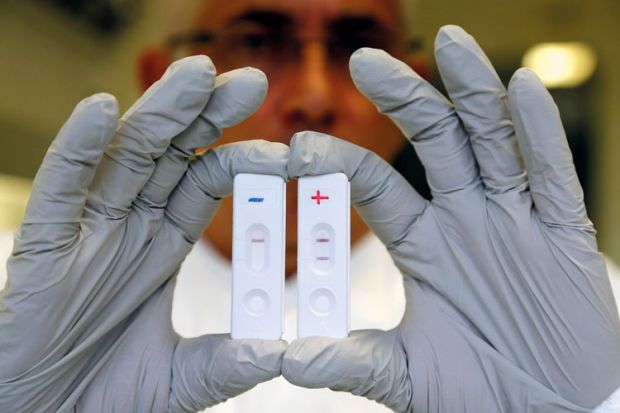View the full list of the world's top 100 universities for clinical, pre-clinical and health
Universities in continental Europe have boosted their standing in this year’s Times Higher Education ranking for clinical, pre-clinical and health subjects.
Such institutions now make up almost a third of the top 100 list, with a total of 31 places compared with 24 last year.
Germany claims six universities in the table, up from two last year, while the Netherlands boasts seven, making it the third most-represented country, behind only the US and the UK.
The highest ranked university outside the UK and North American countries is the Karolinska Institute in Sweden at 13th place – its highest position in the subject rankings’ six-year history – while its national rival, Uppsala University, has broken into the top 50 (48th place) for the first time.
Maria Masucci, deputy vice-chancellor of international affairs at the Karolinska Institute, said that the university is placing a “major focus on the development of [its] innovation system and collaboration with the biotech industry”.
She also cited the Swedish higher education system, which she said encourages “independence, critical thinking [and] the capacity to adapt to an international work environment”, as a reason why universities in the country excel in this area.
The success for institutions in central and northern Europe occurs as the strength of Anglo-American countries in this subject area continues to dwindle, mirroring the trend seen in the overall Times Higher Education World University Rankings 2015-2016.
While the University of Oxford holds on to pole position for the fifth year running and the UK claims half of the top 10 spots, it now has 14 institutions in the overall list, compared with 16 last year. The US’ presentation has also dropped slightly from 36 to 35 and Australia has five universities compared with seven last year.
However, while the overall strength of these countries has dipped, some of their institutions have moved against the tide. One of these is King’s College London, which makes its debut in the top 10 (eighth).
Sir Robert Lechler, vice-principal for health at King’s, said that its success “reflects a steady improvement in our performance in biomedicine”, which has thrived partly due to a culture of collaboration among top London institutions.
“London had this history of being less than the sum of its parts because we instinctively competed at the expense of collaborating and that’s been changing over the past number of years,” he said. “While we still do compete of course, we now look for opportunities to do things in partnership where working in partnership will yield a bigger prize.”
The THE subject rankings use the same 13 performance indicators as the flagship World University Rankings but are recalibrated with different weightings to suit each field.
View the full methodology, along with the top 100 results for clinical, pre-clinical and health
World's top 10 universities for clinical, pre-clinical and health, 2015-2016
| 2015-16 rank | Institution | Country |
| 1 | University of Oxford | United Kingdom |
| 2 | Harvard University | United States |
| 3 | University of Cambridge | United Kingdom |
| 4 | University College London (UCL) | United Kingdom |
| =5 | University of California, Berkeley | United States |
| =5 | Imperial College London | United Kingdom |
| 7 | Stanford University | United States |
| 8 | King’s College London | United Kingdom |
| 9 | Johns Hopkins University | United States |
| 10 | Columbia University | United States |
POSTSCRIPT:
Print headline: Collaboration is shot in the arm for institutions
Register to continue
Why register?
- Registration is free and only takes a moment
- Once registered, you can read 3 articles a month
- Sign up for our newsletter
Subscribe
Or subscribe for unlimited access to:
- Unlimited access to news, views, insights & reviews
- Digital editions
- Digital access to THE’s university and college rankings analysis
Already registered or a current subscriber? Login






